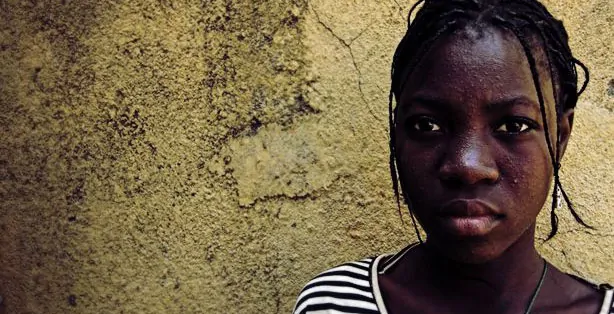Justin Zoradi is putting his education to good use—changing education in South Africa.
Justin Zoradi was sitting outside of class at Portland State University when this challenging phrase ran through his mind: “Would you deny others what you demand for yourself?” He knew it was God, and he knew what he had to do.
Zoradi, founder of These Numbers Have Faces (TNHF), devoted much of his undergraduate studies to the civil conflict of Northern Ireland. He first went to South Africa with a team from Belfast to learn from the nation’s recent transition to democracy. But it didn’t take him long to recognize there was more to this mission. He became involved with a local youth soccer league, the J.L. Zwane Football Club, forming relationships that anchor TNHF’s work today. “I felt God begin something really powerful in me,” he says.
Before leaving, the coach proposed that Zoradi help the boys go to college. Daunted and set to go back to the U.S. for graduate school, he pushed the thought to the back of his mind. While at school, though, he was overwhelmed with the thought of the opportunities being withheld from his friends in South Africa.
As he completed his M.S. in peace and conflict resolution, Zoradi laid the foundation for TNHF, which is now a young, relationally driven nonprofit providing scholarships for deserving students in an impoverished area of South Africa. “I knew that my friends were not statistics. They were not pie graphs, or color-coded charts or Excel spreadsheets,” Zoradi says.
He continues to partner with the J.L. Zwane Football Club, as well as lintombi Zilapha, a girls’ dance team. It is primarily from these two groups that TNHF selects students for whom they will provide scholarships. Research shows students from low-income areas who are involved in sports programs are more likely to stay away from crime and to succeed academically and socially in the future.
“We don’t just give out college scholarships for free. They have to do something for them. That is the difference between aid and development,” Zoradi explains.
TNHF implements what they call the Community Impact Model, requiring scholarship recipients to participate in community service projects, mentorship programs and financial literacy courses. Students also commit 1 percent of their future earnings to TNHF’s ongoing work.
TNHF now has eight students enrolled in college, which costs $23 a day per student. The goal is to have 20 students in the next year. An education is even more precious in a post-apartheid community, where only 3.5 percent of black South Africans graduate from college.
“Education is key because it is lasting aid,” Zoradi says. “It doesn’t dry up. It doesn’t go bad. It can never be taken from you.”
Learn more about Justin and These Numbers Have Faces at thesenumbers.org.





















